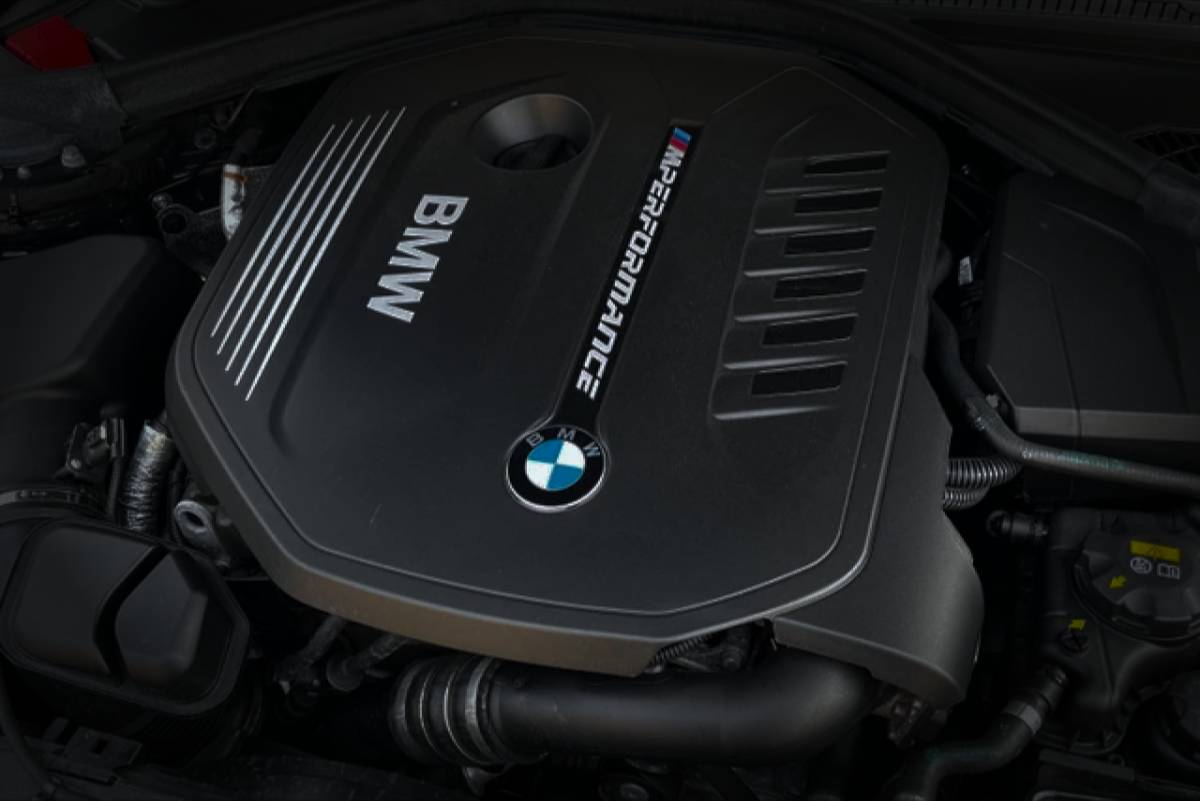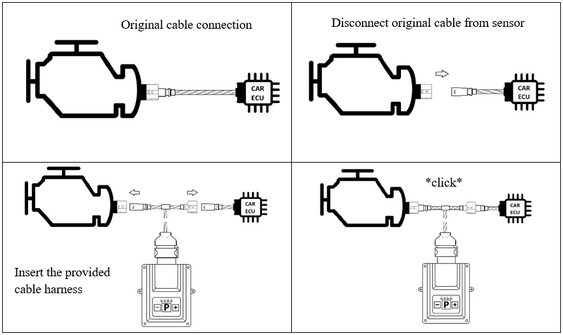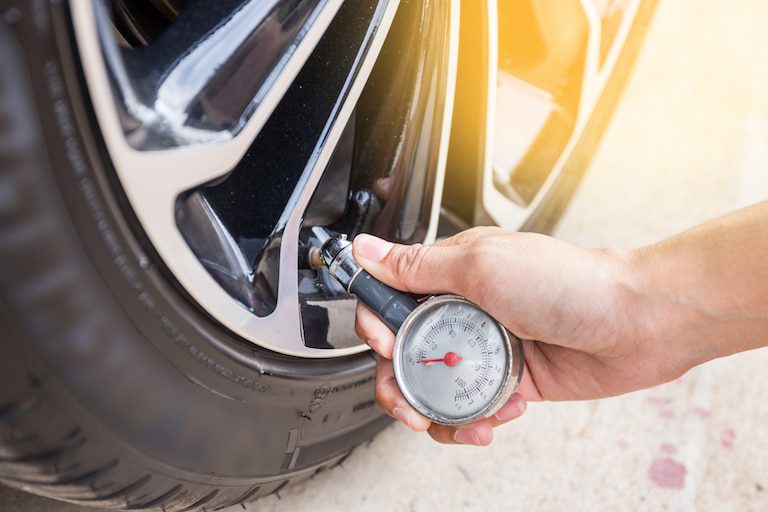Improving Car Performance Through Engine Tuning
Improving car performance through engine tuning involves optimizing the engine’s parameters for better power and efficiency. By making adjustments to the fuel delivery system, ignition timing, and air intake, drivers can experience significant gains in horsepower, torque, and overall speed.
Along with enhancing the engine’s performance, tuning also allows for improved fuel economy and better throttle response. Whether it’s a stock car or a modified one, engine tuning is a popular method for getting more out of a vehicle and achieving the desired level of performance.
By working with a professional tuner, drivers can customize their engine’s settings to meet their specific needs and preferences, ultimately elevating their driving experience.

Credit: www.amazon.com
Benefits Of Engine Tuning
Enhance your car’s performance with engine tuning to unlock increased horsepower, torque, and fuel efficiency. Engine tuning optimizes your vehicle’s capabilities for a smoother driving experience and improved overall functionality.
Engine tuning is a process that involves making modifications to the internal combustion engine to enhance its performance. This involves optimizing various components and systems to achieve improvements in horsepower, torque, and fuel efficiency. The benefits of engine tuning extend beyond just boosting performance; it can also lead to enhanced driving experience, cost savings, and increased longevity of the vehicle. Let’s explore two major benefits of engine tuning: increased horsepower and torque, and improved fuel efficiency.
Increased Horsepower And Torque
Engine tuning can significantly increase the horsepower and torque output of your car’s engine, resulting in improved acceleration and overall power. By fine-tuning the engine’s intake and exhaust systems, as well as optimizing the fuel delivery and ignition timing, the engine can generate more power with greater efficiency. This means quicker acceleration when you step on the gas, making overtaking and merging onto highways a breeze. Whether you’re a car enthusiast seeking a thrilling driving experience or simply someone who wants their daily commute to be more enjoyable, the increased horsepower and torque from engine tuning can make a noticeable difference in your vehicle’s performance.
Improved Fuel Efficiency
Engine tuning doesn’t just boost power; it can also lead to improved fuel efficiency. When your engine operates more efficiently, it consumes less fuel for the same level of performance. By optimizing the air-fuel mixture ratio, reducing friction, and minimizing energy losses, engine tuning allows your car to go the extra mile on each gallon of fuel. This means fewer trips to the gas station, saving you money in the long run. Additionally, improved fuel efficiency also contributes to a more environmentally friendly driving experience. By reducing your carbon footprint, you can drive with a clear conscience, knowing that you’re doing your part to protect the environment.
In conclusion, engine tuning offers numerous benefits that go beyond just horsepower and torque improvements. By unlocking the full potential of your car’s engine, you can enjoy a more thrilling driving experience, save money on fuel, and help reduce emissions. Whether you’re a performance enthusiast or simply looking for ways to optimize your vehicle’s performance, engine tuning is a worthwhile investment that can make a significant difference in your car’s overall performance and efficiency.
Components Of Engine Tuning
Improving car performance is a common goal among car enthusiasts and those looking for a more thrilling driving experience. One way to achieve this is through engine tuning, which involves optimizing various components of the engine to enhance power, efficiency, and overall performance. In this article, we will explore the key components of engine tuning and how they contribute to the success of this process.
Air Intake System
The air intake system plays a crucial role in engine performance by supplying the engine with a steady flow of clean and oxygen-rich air. This system consists of several components, including the air filter, intake manifold, and throttle body. The air filter ensures that the air entering the engine is free from contaminants, such as dust and debris. It is important to choose a high-quality air filter that allows for maximum airflow while still providing adequate filtration.
The intake manifold is responsible for distributing the air evenly to each cylinder of the engine. Upgrading to a performance-oriented intake manifold can enhance airflow and improve overall engine efficiency. The throttle body controls the amount of air entering the engine, and replacing it with a larger one can result in improved throttle response and increased horsepower.
Exhaust System
The exhaust system is another important component of engine tuning, as it is responsible for expelling the exhaust gases produced during combustion. A well-designed exhaust system can help reduce back pressure, which can hinder engine performance. Upgrading to a high-flow exhaust system, such as one with larger diameter pipes or performance mufflers, can enhance exhaust flow and increase power output.
In addition to improving power, a performance exhaust system can also elevate the overall sound and tone of the vehicle. Many car enthusiasts appreciate the deep and aggressive exhaust note produced by aftermarket exhaust systems, which can add to the overall driving experience.
Engine Control Unit
The engine control unit, or ECU, is often considered the brain of the engine. It is responsible for monitoring various engine parameters and making real-time adjustments to optimize performance. The stock ECU is typically programmed with conservative settings to meet emissions regulations and provide a balance between performance and fuel efficiency.
For those seeking greater engine performance, upgrading the ECU can offer significant benefits. Performance ECUs, also known as engine management systems, provide more precise control over fueling and ignition timing, allowing the engine to unleash its full potential. These aftermarket ECUs can be programmed or flashed with custom tunes that are tailored to the specific modifications made to the engine, resulting in improved power, responsiveness, and drivability.
In conclusion, engine tuning involves optimizing various components of the engine to enhance performance. The air intake system, exhaust system, and engine control unit are crucial components that can be upgraded to achieve improved power, efficiency, and overall driving experience. Whether you are a racing enthusiast or simply looking for more exhilaration on the roads, engine tuning can help you extract the maximum potential from your car.
Methods Of Engine Tuning
When it comes to improving car performance through engine tuning, there are various methods that car enthusiasts can explore. These methods focus on enhancing the engine’s power output, fuel efficiency, and overall performance.
Chip Tuning
Chip tuning involves modifying the electronic control unit (ECU) of the engine to optimize performance. By adjusting the fuel-air mixture and ignition timing, chip tuning can increase horsepower and torque output.
Dyno Tuning
Dyno tuning is a process where the vehicle is tested on a dynamometer to measure its power output. Tuning adjustments are made based on these measurements to ensure optimal performance and efficiency.
Plug-and-play Tuners
Plug-and-Play tuners are user-friendly devices that can be easily installed into the vehicle’s OBD-II port. These tuners come pre-programmed with optimized settings to enhance performance without the need for complex modifications.
Considerations Before Engine Tuning
Before proceeding with engine tuning, it’s crucial to consider a few factors that can impact the process and your overall driving experience. Delving into engine tuning without taking these considerations into account can lead to warranty issues and the potential for subpar performance. Therefore, it’s essential to weigh these factors to ensure a smooth and effective engine tuning experience.
Warranty Implications
Vehicle warranties are a vital aspect to consider before initiating any modifications to your car’s engine. Modifying the engine through tuning may lead to the voiding of your manufacturer’s warranty if not done properly. This means that any future issues related to the modified components may not be covered by the warranty, potentially resulting in substantial out-of-pocket expenses. It’s imperative to carefully review your warranty terms and consult with a professional tuner to understand the potential impacts on your warranty before proceeding with tuning.
Choosing A Reputable Tuning Shop
One of the most important decisions in the engine tuning process is the selection of a reputable tuning shop. The expertise and quality of service provided by the tuning shop can significantly impact the outcome of the tuning process. Research available tuning shops in your area and consider factors such as their experience, customer reviews, and the types of tuning services they offer. Engaging with a well-established and reputable tuning shop can ensure that the tuning process is carried out effectively and with the necessary expertise, minimizing the risk of potential issues arising during or after the tuning process.
Diy Vs. Professional Tuning
When it comes to improving car performance through engine tuning, there are two main options to consider: DIY tuning and professional tuning. Each approach has its own set of pros and cons, as well as unique benefits. Let’s take a closer look at the differences between the two and explore the advantages of each in more detail.
Pros And Cons Of Diy Tuning
DIY tuning offers car enthusiasts the freedom to experiment with their vehicle’s performance without the need for professional help. However, it also comes with a set of challenges and limitations.
Benefits Of Professional Tuning
Professional tuning provides car owners with the expertise of skilled mechanics and technicians who can optimize the vehicle’s performance with precision. Let’s explore the advantages of opting for professional tuning over the DIY route.

Credit: www.bimmer-tech.net

Credit: vector-tuning.com
Frequently Asked Questions For Improving Car Performance Through Engine Tuning
Is Engine Tuning Good For Your Car?
Yes, engine tuning can be beneficial for your car. It helps improve performance, increase horsepower, and enhance fuel efficiency. Additionally, it can optimize engine settings to match your driving preferences and maximize the overall driving experience.
How Can I Tune My Engine To Get More Power?
To tune your engine for more power, consider upgrading the air intake and exhaust systems, optimizing the fuel/air mixture, and using high-performance components. Consult with a professional tuner or mechanic for the best modifications specific to your engine. Regular maintenance, such as changing spark plugs and filters, also helps optimize performance.
Will A Tune Make Your Car Faster?
Yes, a tune can make your car faster by optimizing engine performance and fuel efficiency.
What Is The Difference Between Engine Tuning And Performance Tuning?
Engine tuning focuses on optimizing the engine’s performance. Performance tuning enhances overall vehicle performance, including handling and acceleration. Both aim to improve power output and fuel efficiency.
Conclusion
By fine-tuning the engine, you can enhance your car’s performance significantly. Remember to consult a professional for optimal results. Stay proactive in maintaining your vehicle to ensure peak performance. With engine tuning, you can experience improved speed and efficiency on the road.
Keep driving with confidence!

